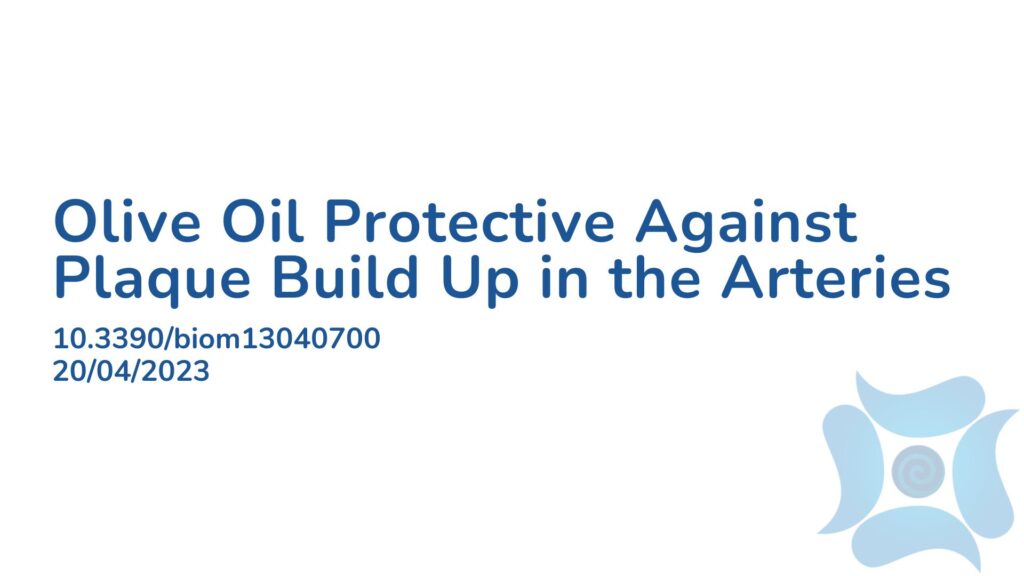Summary:
Cardiovascular diseases such as ischemic heart disease and stroke continue to be the leading cause of death worldwide. The first stage of common cardiovascular diseases is the formation of fatty lesions in the artery wall, which then end up forming dangerous plaque, also referred to as atherosclerosis. Diet, specifically the Mediterranean diet, has been widely acknowledged in literature as one of the healthiest diets for heart health, partly due to its olive oil content. In this review, the effects of olive oils micro-constituents are analysed in relation to atherosclerosis and shows that olive oil possesses anti-atherogenic effects. This means olive oil’s constituents are able to act as inhibitors to the formation of plaque. Moderate intake of olive oil consumed in the context of a balanced diet is therefore recommended as a protective dietary measure for heart health.
Abstract:
Atherosclerosis is a progressive vascular multifactorial process. The mechanisms underlining the initiating event of atheromatous plaque formation are inflammation and oxidation. Among the modifiable risk factors for cardiovascular diseases, diet and especially the Mediterranean diet (MedDiet), has been widely recognized as one of the healthiest dietary patterns. Olive oil (OO), the main source of the fatty components of the MedDiet is superior to the other “Mono-unsaturated fatty acids containing oils” due to the existence of specific microconstituents. In this review, the effects of OO microconstituents in atherosclerosis, based on data from in vitro and in vivo studies with special attention on their inhibitory activity against PAF (Platelet-Activating Factor) actions, are presented and critically discussed. In conclusion, we propose that the anti-atherogenic effect of OO is attributed to the synergistic action of its microconstituents, mainly polar lipids that act as PAF inhibitors, specific polyphenols and α-tocopherol that also exert anti-PAF activity. This beneficial effect, also mediated through anti-PAF action, can occur from microconstituents extracted from olive pomace, a toxic by-product of the OO production process that constitutes a significant ecological problem. Daily intake of moderate amounts of OO consumed in the context of a balanced diet is significant for healthy adults.
Article Publication Date: 20/04/2023
DOI: 10.3390/biom13040700



